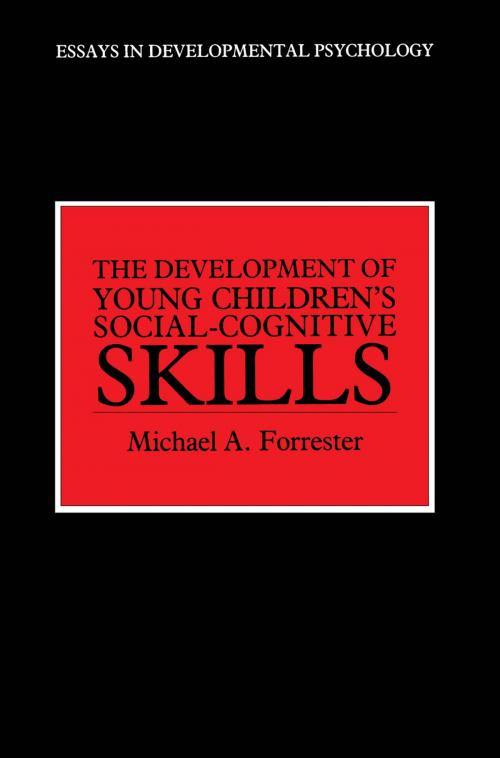The Development of Young Children's Social-Cognitive Skills
Nonfiction, Health & Well Being, Psychology, Developmental Psychology| Author: | Michael A. Forrester | ISBN: | 9781317775362 |
| Publisher: | Taylor and Francis | Publication: | October 23, 2013 |
| Imprint: | Psychology Press | Language: | English |
| Author: | Michael A. Forrester |
| ISBN: | 9781317775362 |
| Publisher: | Taylor and Francis |
| Publication: | October 23, 2013 |
| Imprint: | Psychology Press |
| Language: | English |
Understanding how young children begin to make sense out of the social world has become a major concern within developmental psychology. Over the last 25 years research in this area has raised a number of questions which mirror the confluence of interests from cognitive-developmental and social-developmental psychology. The aims of this book are to consider critically the major themes and findings within this growing social-cognitive developmental research, and to present a new theoretical framework for investigating children's social cognitive skills. Beyond being the first major review of the literature in this area, this synopsis articulates why contemporary theoretical ideas (e.g. information processing, Piagetian and social interactionist) are unlikely ever to provide the conceptual basis for understanding children's participative skills.
Building upon ideas both within and beyond mainstream developmental psychology, the "eco-structural" approach advocated seeks to draw together the advantages of the ecological approach in perceptual psychology with the considerable insights of the conversational analysts, child language researchers and Goffman's analysis of social interaction. This convergence is centred around the dynamic and participatory realities of engaging in conversational contexts, the locus for acquiring social cognitive skills.
The framework provides the building blocks for models of developmental social cognition which can accommodate dynamic aspects of children's conversational skills. This book then is a review of an important area of developmental psychology, a new perspective on how we can study children's participatory social-cognitive skills and a summary of supporting research for the framework advocated.
Understanding how young children begin to make sense out of the social world has become a major concern within developmental psychology. Over the last 25 years research in this area has raised a number of questions which mirror the confluence of interests from cognitive-developmental and social-developmental psychology. The aims of this book are to consider critically the major themes and findings within this growing social-cognitive developmental research, and to present a new theoretical framework for investigating children's social cognitive skills. Beyond being the first major review of the literature in this area, this synopsis articulates why contemporary theoretical ideas (e.g. information processing, Piagetian and social interactionist) are unlikely ever to provide the conceptual basis for understanding children's participative skills.
Building upon ideas both within and beyond mainstream developmental psychology, the "eco-structural" approach advocated seeks to draw together the advantages of the ecological approach in perceptual psychology with the considerable insights of the conversational analysts, child language researchers and Goffman's analysis of social interaction. This convergence is centred around the dynamic and participatory realities of engaging in conversational contexts, the locus for acquiring social cognitive skills.
The framework provides the building blocks for models of developmental social cognition which can accommodate dynamic aspects of children's conversational skills. This book then is a review of an important area of developmental psychology, a new perspective on how we can study children's participatory social-cognitive skills and a summary of supporting research for the framework advocated.















